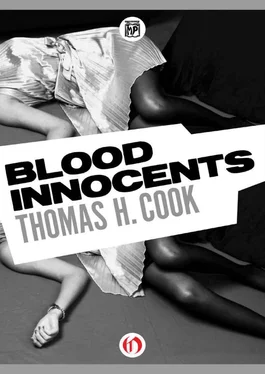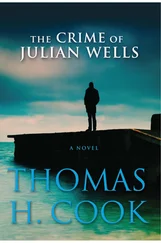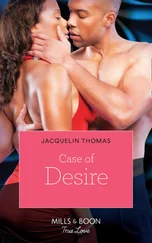Thomas Cook - Blood Innocents
Здесь есть возможность читать онлайн «Thomas Cook - Blood Innocents» весь текст электронной книги совершенно бесплатно (целиком полную версию без сокращений). В некоторых случаях можно слушать аудио, скачать через торрент в формате fb2 и присутствует краткое содержание. Жанр: Триллер, на английском языке. Описание произведения, (предисловие) а так же отзывы посетителей доступны на портале библиотеки ЛибКат.
- Название:Blood Innocents
- Автор:
- Жанр:
- Год:неизвестен
- ISBN:нет данных
- Рейтинг книги:5 / 5. Голосов: 1
-
Избранное:Добавить в избранное
- Отзывы:
-
Ваша оценка:
- 100
- 1
- 2
- 3
- 4
- 5
Blood Innocents: краткое содержание, описание и аннотация
Предлагаем к чтению аннотацию, описание, краткое содержание или предисловие (зависит от того, что написал сам автор книги «Blood Innocents»). Если вы не нашли необходимую информацию о книге — напишите в комментариях, мы постараемся отыскать её.
Blood Innocents — читать онлайн бесплатно полную книгу (весь текст) целиком
Ниже представлен текст книги, разбитый по страницам. Система сохранения места последней прочитанной страницы, позволяет с удобством читать онлайн бесплатно книгу «Blood Innocents», без необходимости каждый раз заново искать на чём Вы остановились. Поставьте закладку, и сможете в любой момент перейти на страницу, на которой закончили чтение.
Интервал:
Закладка:
“A roman numeral two,” Mathesson said thoughtfully. “Jesus Christ. What the hell could that mean?”
“I don’t know. Maybe nothing. Maybe it’s just a tally.”
“A tally? What do you mean?”
“Just that it may be a tally and nothing else.” Reardon looked up at the roman numeral two. “You know, the number ‘two’ for two dead deer.”
“Oh,” Mathesson said. “Yeah, maybe.” He looked at the number, then outside at the two tarpaulins lying heavily over the bodies of the fallow deer. He shook his head. “A tally.”
A tally, Reardon thought. Perhaps. But he was also thinking of another possibility. He had seen it more times than he liked to recall, and it had always begun with a terrible crime, one almost incomprehensible in its brutality: sex organs hanging from a doorknob or a severed finger floating placidly in a decanter of scotch or some other inhuman mutilation. And then that sudden, quiet, stunning touch of the human. The undeniable suggestion that even in the raving, animal cruelty of the crime, some touch of conscience remained. Sometimes it might be nothing more than a handkerchief too obviously left behind. Once, Reardon recalled, it was a telephone number tucked loosely under a doormat. But each time it had led to the killer, who had retained, even through the viciousness of the act, the certain knowledge that it was wrong and who was, therefore, determined to be caught.
Or perhaps it was a tally, and nothing more.
When Reardon got back to his desk in the precinct house, he found a note requesting him to telephone his son. He felt no desire to call but found himself dialing his son’s law office, anyway.
“Mr. Reardon’s office,” the secretary said.
“This is his father,” Reardon said.
“He’s in conference at this time.”
“This is his father,” Reardon repeated. He had sat through too many conferences in his life to be awed by the word.
There was a pause. “Uh, just a moment, sir. I’ll see if he can be interrupted.”
Reardon waited for a moment, thinking of the fallow deer with more than a trace of pity, then of a small dog he had once owned. It had been run over by a car. The driver had stopped, gotten out and very sadly offered his apologies and some money. Reardon had declined, and they had shaken hands. Whenever Reardon felt some need for a quiet moment of shared decency and generosity, his mind turned to that.
“Mr. Reardon?” the secretary said, returning to the line.
“Yes.”
“Mr. Reardon wishes to know if you will have dinner with him tonight. He would like you to come to his apartment at around seven-thirty.”
“All right,” Reardon said.
“May I tell him you’ll be there?”
Reardon found the formality of the secretary irritating. “Yes, you may.”
“Thank you, sir.”
“Yeah, right,” Reardon hastily said, glad to get off the phone.
As soon as he hung up he went into Piccolini’s office. Piccolini sat hunched over his desk, staring glumly at an inch-thick stack of requisition forms. Through the window at Piccolini’s back Reardon could see a few flakes of falling snow. “I saw the deer,” Reardon said.
“Get any leads?” Piccolini was smoking an enormous black cigar, and the entire room was filled with heavy blue smoke.
“Maybe one.”
Piccolini’s eyes brightened. “Yeah, what?”
“There was some writing on the shed.”
“What kind of writing?”
“A roman numeral two.”
Piccolini squinted through a puff of smoke. “What does that mean?”
“I don’t know,” Reardon said. “I’m having the lab check to see if it was written in deer’s blood.”
“Is that all?”
“One of the deer died instantly,” Reardon added dryly.
Piccolini leaned forward in his chair. “Reardon, I told you this is an important case. This may be the biggest thing in the city right now. Are you taking this thing seriously?”
“Yes.”
“You retire in four years, Reardon.”
“So?”
“So you have a great record with the department. The Lamprey case alone would get you into the detectives’ hall of fame.”
Reardon shrugged. “The Lamprey case was luck.”
“The Lamprey case was memory,” Piccolini said, “remembering details from way back. That’s what a detective is all about.”
Reardon did not know where this was supposed to be leading. Rehashing old cases had never appealed to him. It was like listening to middle-aged former quarterbacks blathering about past athletic glories. He looked out beyond Piccolini’s face and through the window behind him to the snow.
“You know you retire in a few years,” Piccolini said, “so go out on a big one. Don’t mess this up. It’s a big case. It’s not a homicide, but it’s a big case, like I keep telling you. So break it. Go out a champ.”
“Save the locker room pep talk, Mario. I’m too old to get steam out of that stuff.”
“Maybe so, but I’d hate for you to louse this up.”
“It won’t be loused up.”
“Good.”
Reardon went back to his desk and began typing up a brief account of his investigation so far. He described the condition of the deer, recorded the probable time of death, noted the probable characteristics of the death weapon or weapons. He noted that entry into the cage of the fallow deer would have been possible for anyone within the indent range of height and weight, that no human bloodstains had been located at or near the scene of the crime, and that, thus far, there were no witnesses.
He had recorded such details hundred of times. He had described warehouses of weaponry: pistols of all calibers, shotguns of all gauges, blades of all lengths and widths and adornment, spikes, tire irons, bottles of all shapes and colors, acids, poisons, ropes, chains, wires, torches, bricks, baseball bats – every conceivable object that an agile, enraged and premeditating ape could use to kill another.
He sat, thinking over the details of the case before him, but they did not seem to lead anywhere. Wallace Van Allen had donated two fallow deer and someone had killed them both, one with a ferocious brutality and the other with one devastating blow. Perhaps the killer had been repelled by his slaughter of the first deer and then had impulsively killed the other one out of some deranged fear of leaving any witness, even an animal. Or perhaps the approach of a human witness had frightened him, causing him to cut short the slaughter he had intended for the second deer. If he had bolted from the park someone might have noticed him. And Reardon knew he must have been drenched with blood after the first killing. A slashing killing sent geysers of blood in all directions; spurting vessels, the arcs of the weapon in its rise and fall, the thrashing about of the victim – every act in a slashing killing left a trail of blood. But no amount of blood caked on a killer or oozing from between his fingers would matter if there were no one around to see it. And as yet there were no witnesses. Reardon had already recorded that intolerable fact succinctly in his notebook: “Wit.: 0.”
The crime had taken place at about three-thirty in the morning. Still, Reardon’s experience had taught him that eyes watched the streets constantly, that in a large city in a public place there were almost no unrecorded acts. He remembered the Ruiz case. If anyone had ever expected to kill invisibly in a city it was Paco Ruiz. Dressed in a business suit although he was a blue-collar worker, Ruiz had escorted a teenage boy to the depths of the city’s largest park and in one of its many narrow ravines of granite and underbrush he had soundlessly strangled him to death. It had happened about two hours before dawn on a moonless night in the heart of a supposedly deserted and isolated park, and two separate people had seen it. One was another teenage boy who had run away from his home that afternoon, fleeing the alcoholic rage of his father. The other was a thirty-five-year-old painter who all his life, he told Reardon, had been looking for the darkest place in the world in order to get some understanding of the nature of light. Each witness had been unaware of the other, but both of them had watched Ruiz and the boy approach from the distance, and both had sat in horrified astonishment and watched, from two widely separate angles, a large muscular man strangle a small-framed boy to death.
Читать дальшеИнтервал:
Закладка:
Похожие книги на «Blood Innocents»
Представляем Вашему вниманию похожие книги на «Blood Innocents» списком для выбора. Мы отобрали схожую по названию и смыслу литературу в надежде предоставить читателям больше вариантов отыскать новые, интересные, ещё непрочитанные произведения.
Обсуждение, отзывы о книге «Blood Innocents» и просто собственные мнения читателей. Оставьте ваши комментарии, напишите, что Вы думаете о произведении, его смысле или главных героях. Укажите что конкретно понравилось, а что нет, и почему Вы так считаете.












